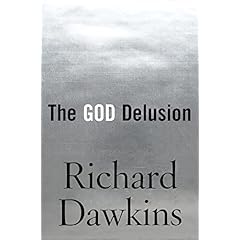I don't believe in that "god" either...

I am now reading The God Delusion by eminent scientist and Oxford professor Dr. Richard Dawkins. The book is engaging, well-written, and, in many places, quite humorous and witty. Dawkins, described on the book's inside jacket, among other things, as "the world's most prominent atheist," has a clear agenda from the outset of the book to debunk any notion of God's existence.
In trying to disprove God, though, this incredibly bright and gifted scientist casts aside much of the scientifically rigorous inquiry that has afforded him the honors and acheivements he has earned. Instead, he engages in a rather anemic 300+ page OP-ED style infomercial for atheism.
In doing so, he seems to be "preaching to the choir" of already disenchanted atheists and perhaps a segment of barely-on-the-fence agnostics. He also sets up religion, and in particular Christian and Islamic religion as a sort of one-dimensional straw man that he then knocks over with the very sort of "blinding with science" arguments that he rails against in some scientists who happen to be believers.
I have also learned (or been reminded of) some important intellectual perspectives from reading Dr. Dawkins book. I can hardly begin to unpack my thoughts about this book in one post, so I shall most likely revisit it a few times here on the blog to try and unpack the salient points.
Rather interestingly to me, Dawkins himself does not even list himself as an absolute atheist. Instead, in chapter two, he posits a continuum with seven nodal points between absolute belief and absolute disbelief in God:
Spectrum of probabilities for the existence of God
Seven milestones along the way:
1- Strong theist. 100% probability of God
2- De facto theist. Strong but not 100%
3-agnostic leaning toward theism
4- completely impartial agnostic
5- agnostic leaning toward atheism
6- very low probability but short of zero
7- strong atheist
Dawkins places himself in the sixth of his categories, so he does not totally rule out the possible existence of God or gods. He adds, with great humor that "I am agnostic only to the extent that I am agnostic about fairies at the bottom of the garden." (51)
A very interesting and engaging read, but rather disappointingly lacking, in my humble opinion, a substantive engagement with questions of ultimate meaning and human origins. There is much more to say about this, but my lunchtime has concluded, so I shall revisit it in more depth again in the near future.
Ultimately, I am of the mind that our faith can only be strengthened by reading, and genuinely considering, a wide diversity of perspectives, including atheist, agnostic and other religious worldviews, because- after all, if one's faith is truly worth embracing, then it will withstand the most rigorous human questions we can throw at it.
Peace on the journey,
John



0 Comments:
Post a Comment
Subscribe to Post Comments [Atom]
<< Home